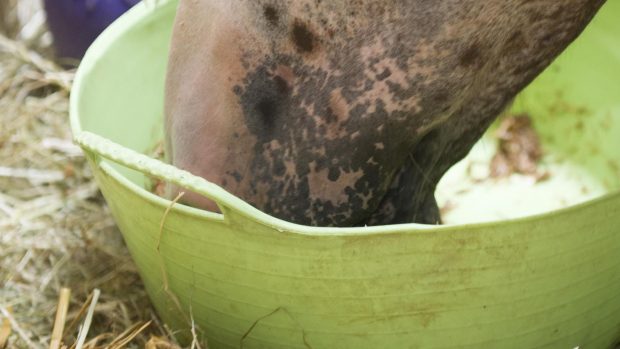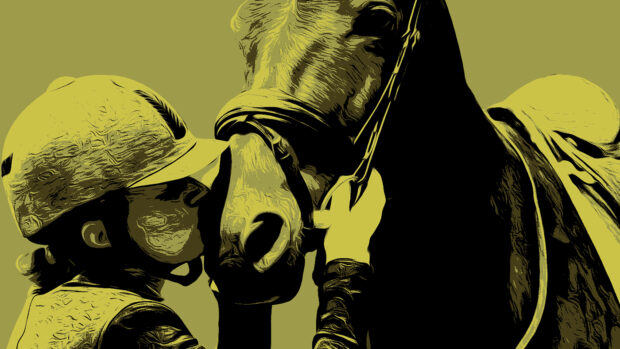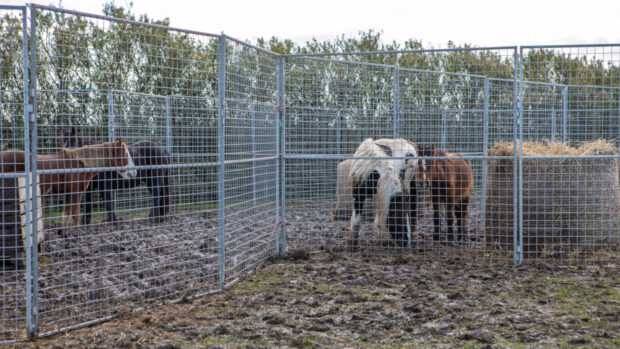Owners are being urged to take care when placing horses on loan.
World Horse Welfare and Retraining of Racehorses (RoR) are reminding owners to do their research before loaning or giving away their horse to an individual, sanctuary or rehoming and rehabilitation organisation.
“We’ve seen a number of cases over recent years of sanctuaries, not-for-profit organisations and individuals taking in unwanted horses from a range of backgrounds that have resulted in welfare problems for a variety of reasons,” said Tony Tyler of World Horse Welfare.
“Some have simply become overwhelmed by the huge time and financial commitments required in caring for these animals, while we’ve seen examples of others selling on horses to the open market or masking injuries in an attempt to lure in lucrative private buyers.”
| Related articles |
RoR now has 11,000 registrations on its database of former racehorses that are now undertaking new careers and World Horse Welfare rehomed a record 313 equines in 2015.
Mr Tyler added that World Horse Welfare and RoR can offer advice for owners who are considering rehoming their horse.
“Acting in the best interests of the horse in question should be the main priority whether it be a formerly-raced thoroughbred or child’s show pony, doing everything possible to safeguard its future welfare is essential,” he said.
Di Arbuthnot, from RoR, said that finding the right home for a horse is “so important” but not always easy.
“We are seeing more and more former racehorses thriving in a second career, so there are an increasing number of options now for such horses and less of a role or need for sanctuaries,” she added.
The charities have issued the following advice for people looking to find their horse a new home:
- Be wary of any organisation or individual contacting you to offer to take your horse. Some unscrupulous people will prey on anyone advertising their horse as a companion and may not always be what they seem.
- Do your research. Social media and the huge amount of content online is an invaluable resource in researching any individual or organisation. Ask other horse owners for advice as personal recommendations can be the best way to give you peace of mind.
- If you’re concerned about the legitimacy of an organisation or individual, ask which professionals they use (such their as vet, farrier, dentist or physio) and then contact these people to ask for their feedback.
- Any organisation operating as a charity must be registered and possess a registered charity number. You can search for registered charities using the Charity Commission website. http://forms.charitycommission.gov.uk/find-charities/
- Not-for-profit organisations are not required to be registered with any central body and are largely unregulated, however all riding schools and equestrian centres must be licenced and this can be checked with your local council.
When transferring ownership of a horse, it is the legal responsibility of the new owner to notify the passport issuing organisation (PIO) but you can also contact the PIO so as an added measure. - If you are loaning a horse you need to ensure a legally binding loan agreement is agreed and signed by both parties. This will set out the exact terms of the loan and responsibilities of each party.
- If you are loaning your horse, you should keep a full copy of the horse’s passport and notify the PIO that the horse is on loan.
- If you are loaning your horse, you should also be prepared to regularly visit the horse at his new home in order to check how he is getting on. Any organisation or individual who is not happy about you doing so should immediately raise alarm bells.
- It is important to remember that once you have transferred ownership of your horse to another party, you relinquish all responsibility and rights to that particular animal and the new owner is free to do what they please. This further increases the importance of making the right decision so you can have full peace of mind.
- Visiting any potential home is essential. Check the amount and quality of grazing, is there enough for the number of horses? Do all horses have free access to water? Are the fields regularly cleared of droppings?





